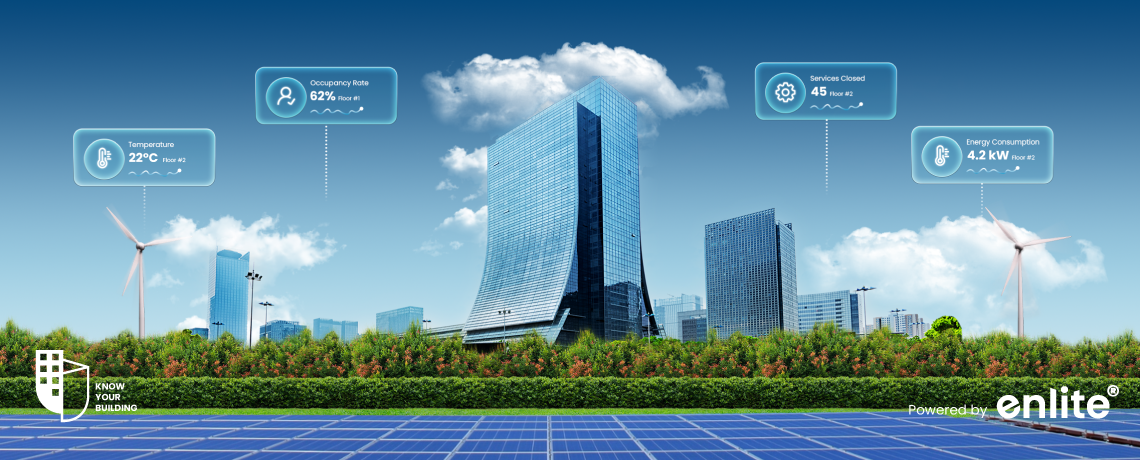Sustainability has become a pressing issue across industries, and commercial real estate is no exception. As one of the major contributors to global carbon emissions, real estate plays a crucial role in shaping a sustainable future. Climate tech companies are emerging as key players, providing innovative solutions to help commercial properties reduce their carbon footprint, enhance energy efficiency, and meet sustainability goals.
In this blog, we explore how climate tech companies are driving sustainability in commercial real estate by offering advanced tools and systems that promote environmental responsibility while delivering financial benefits.
The Role of Climate Tech in Decarbonizing Commercial Real Estate
One of the primary challenges in commercial real estate is the significant carbon emissions associated with building operations. Climate tech companies address this by deploying energy management systems (EMS) that help reduce emissions and optimize energy use. These systems monitor and control energy consumption, provide real-time data, and facilitate the integration of renewable energy sources such as solar and wind.
For example, smart building solutions allow property managers to automate lighting, HVAC systems, and even elevators, adjusting usage based on occupancy and environmental conditions. This not only cuts energy waste but also improves building efficiency.
Water Conservation and Management
Water is another precious resource that commercial real estate must use responsibly. Climate tech companies offer smart water monitoring systems that detect leaks, measure consumption, and enable automated water usage reduction strategies. By optimizing water flow and ensuring prompt detection of inefficiencies, these solutions help prevent wastage while also contributing to sustainability certifications like LEED.
Optimizing HVAC Systems for Energy Efficiency
Heating, ventilation, and air conditioning (HVAC) systems are often the most energy-intensive components of commercial buildings. By integrating advanced HVAC monitoring technologies, climate tech companies help real estate owners manage their HVAC systems more efficiently, reducing energy consumption while maintaining optimal air quality.
These systems can use real-time data and predictive analytics to improve energy use patterns, reducing carbon emissions and operational costs.
Waste Management and Circular Economy
Climate tech can also support sustainable waste management practices within commercial properties. Smart waste systems track waste generation, ensure proper sorting for recycling, and streamline waste collection processes. The push toward a circular economy, where materials are reused and recycled, aligns perfectly with the goals of climate tech companies. Implementing these practices reduces landfill waste and contributes to environmental responsibility.
Data-Driven Sustainability Insights
The ability to collect, analyze, and act upon building data is transforming how commercial real estate operates. Climate tech companies leverage big data and AI-driven insights to inform decision-making processes. By understanding energy consumption patterns, predicting maintenance needs, and optimizing performance, commercial real estate can achieve greater sustainability.
Predictive maintenance enabled by data analytics minimizes downtime, improves building longevity, and ensures that sustainability targets are consistently met.
Green Certifications and Compliance
Achieving green building certifications like LEED, BREEAM, or WELL can significantly enhance a commercial property’s value. Climate tech companies facilitate this process by offering tools that ensure compliance with these certifications. Whether through improving energy efficiency, water conservation, or air quality management, climate tech makes it easier for commercial real estate to meet the rigorous requirements of these certifications.
Financial Benefits of Climate Tech for Commercial Real Estate
Adopting climate tech solutions doesn’t just benefit the environment; it also offers considerable financial advantages. Energy-efficient buildings cost less to operate, reducing utility bills and maintenance costs. Additionally, sustainable buildings attract eco-conscious investors and tenants who are willing to pay a premium for properties that align with their environmental values.
Case Studies of Successful Climate Tech Integration
To truly appreciate the impact of climate tech, we can look at examples of successful implementations. Leading commercial real estate projects around the world are showcasing how climate tech is driving measurable improvements in energy efficiency, waste management, and overall sustainability.
For instance, the use of smart building management systems in large-scale commercial properties has led to a significant reduction in energy consumption and operational costs, positioning these buildings as leaders in sustainability.
As the demand for sustainable practices continues to grow, climate tech companies are playing a pivotal role in transforming the commercial real estate industry. By helping buildings decarbonize, conserve resources, and optimize operations, these companies are paving the way for a greener, more sustainable future.
The commercial real estate sector must embrace climate tech innovations not only for regulatory compliance and cost savings but also to contribute meaningfully to the global sustainability movement.














